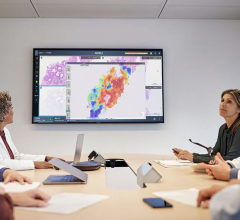
October 5, 2015 — The American College of Radiology (ACR) is one of 39 healthcare collaborative networks selected to participate in the Transforming Clinical Practice Initiative, announced today by Health and Human Services Secretary Sylvia M. Burwell.
The ACR will receive up to $2,926,400 to provide technical assistance support to help equip clinicians in the Radiology Support, Communication, and Alignment Network (R-SCAN) with tools, information, and network support needed to improve quality of care, increase patients’ access to information and spend healthcare dollars more wisely.
“The R-SCAN program aligns with the ACR Imaging 3.0 initiative in which radiologists help referring providers select the best imaging exam, help patients avoid unwarranted testing, reduce errors and improve quality and safety,” said William T. Thorwarth, Jr., M.D., FACR, chief executive officer of the American College of Radiology.
As a Support and Alignment Network, the ACR will support at least 24,000 clinicians to expand their quality improvement capacity, learn from one another, and achieve common goals of improved care, better health and reduced cost. R-SCAN will bring together radiologists, their referring physician colleagues, and patients in a collaboration to reduce unnecessary testing and procedures and to help participating clinicians meet the initiative’s phases of transformation and associated milestones, clinical and operational results.
“R-SCAN, via the ACR Practice Quality Improvement Project, provides all the needed instructions, tools and interventions to connect radiologists and referring clinicians, focus the conversations on imaging appropriateness and safety, and document improvements over time. We could not be more pleased to have HHS support for this project,” said Max Wintermark, M.D., chair of the American College of Radiology Value-Based Radiology PQI Project.
These awards are part of a comprehensive strategy advanced by the Affordable Care Act that enables new levels of coordination, continuity and integration of care, while transitioning volume-driven systems to value-based, patient-centered, healthcare services.
“Supporting doctors and other health care professionals change the way they work is critical to improving quality and spending our healthcare dollars more wisely,” said Secretary Burwell. “These awards will give patients more of the information they need to make informed decisions about their care and give clinicians access to information and support to improve care coordination and quality outcomes.”
For more information: innovation.cms.gov


 July 26, 2024
July 26, 2024 








